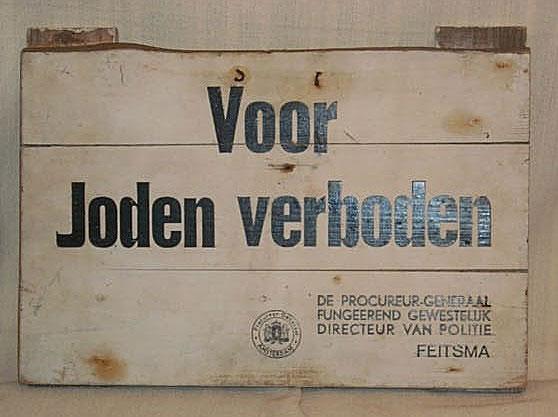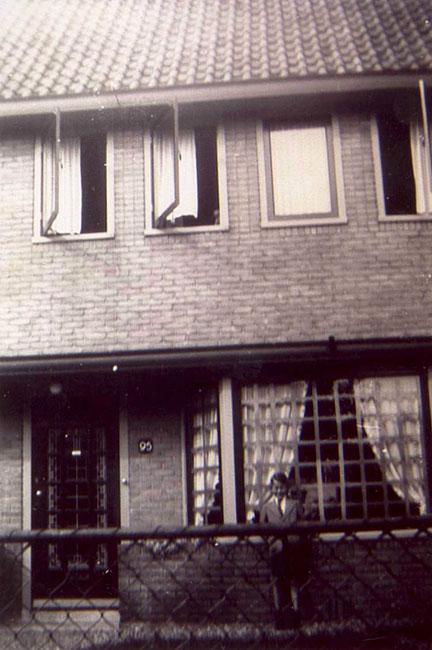
The sign was hung in a tennis court in the city of Hilversum, Holland and was secretly removed by the youth W. Niemoeller in 1942.
In the corner of the sign is the signature and stamp of the city: “Signed: Attorney General Feitsma Functioning as Regional Chief of Police”









